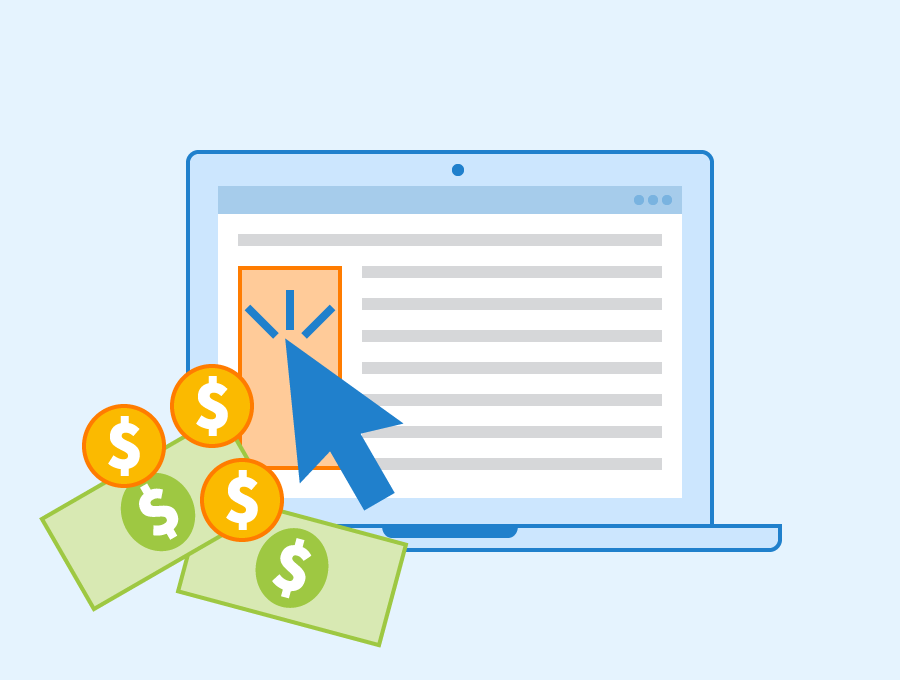In the digital age, PPC ( Pay-Per-Click ) has become an indispensable advertising tool for businesses that want to increase their online presence and attract target customers. With the ability to control costs and measure effectiveness accurately, PPC brings many outstanding benefits compared to traditional forms of advertising. With this article, EQVN will help you better understand what PPC is, the benefits of PPC, how it works, and optimization strategies to achieve the highest efficiency in your advertising campaign.
What is PPC?
PPC (Pay-Per-Click) is a form of online advertising where advertisers only pay when users click on their ads. It is an effective way to quickly attract traffic and increase a business’s online presence. PPC is commonly used on search engines such as Google, Bing, and social media platforms such as Facebook, Instagram.
PPC is more than just placing an ad and waiting for results. It requires careful research, specific strategies, and ongoing management to ensure that your ad campaign is maximally effective. Elements such as keywords, ad copy, landing pages, and budgets all need to be optimized for best results.
Benefits of PPC
Increase Traffic Quickly
One of the biggest benefits of PPC is the ability to drive traffic to your website quickly. When you launch a PPC campaign, your ads can appear immediately on search engines or social media sites, helping you reach your target customers immediately.
Cost Control
PPC allows you to effectively control your advertising costs. You can set daily or monthly budgets and only pay when someone clicks on your ad. This helps you optimize your advertising budget and ensures that you only pay for real traffic.
Easy Performance Measurement
PPC platforms offer detailed analytics tools that make it easier to track and evaluate campaign performance. You can view clicks, conversion rates, cost per click (CPC), and more to gauge campaign performance and make adjustments and optimizations as needed.
Enhance Brand Awareness
PPC advertising helps businesses appear in prominent positions on search engines and partner websites. This not only increases traffic but also helps increase brand awareness, helping customers remember you when they need the products or services you offer.
Precise Targeting
PPC allows you to target specific audiences based on many factors such as location, interests, behavior, demographics, etc. With this ability, you can save budget and increase the effectiveness of your advertising campaign.
Disadvantages of PPC
- High costs: If not managed properly, PPC costs can escalate rapidly. Especially in industries with a lot of competition, bids for keywords can be very high.
- High competition: Especially in industries with a lot of competition, achieving good ad placement can be difficult and expensive.
- Requires ongoing management: PPC requires ongoing management to ensure that your campaign is always achieving maximum effectiveness. You need to regularly monitor and adjust your campaign to ensure that you are using your budget effectively.
How does PPC work?
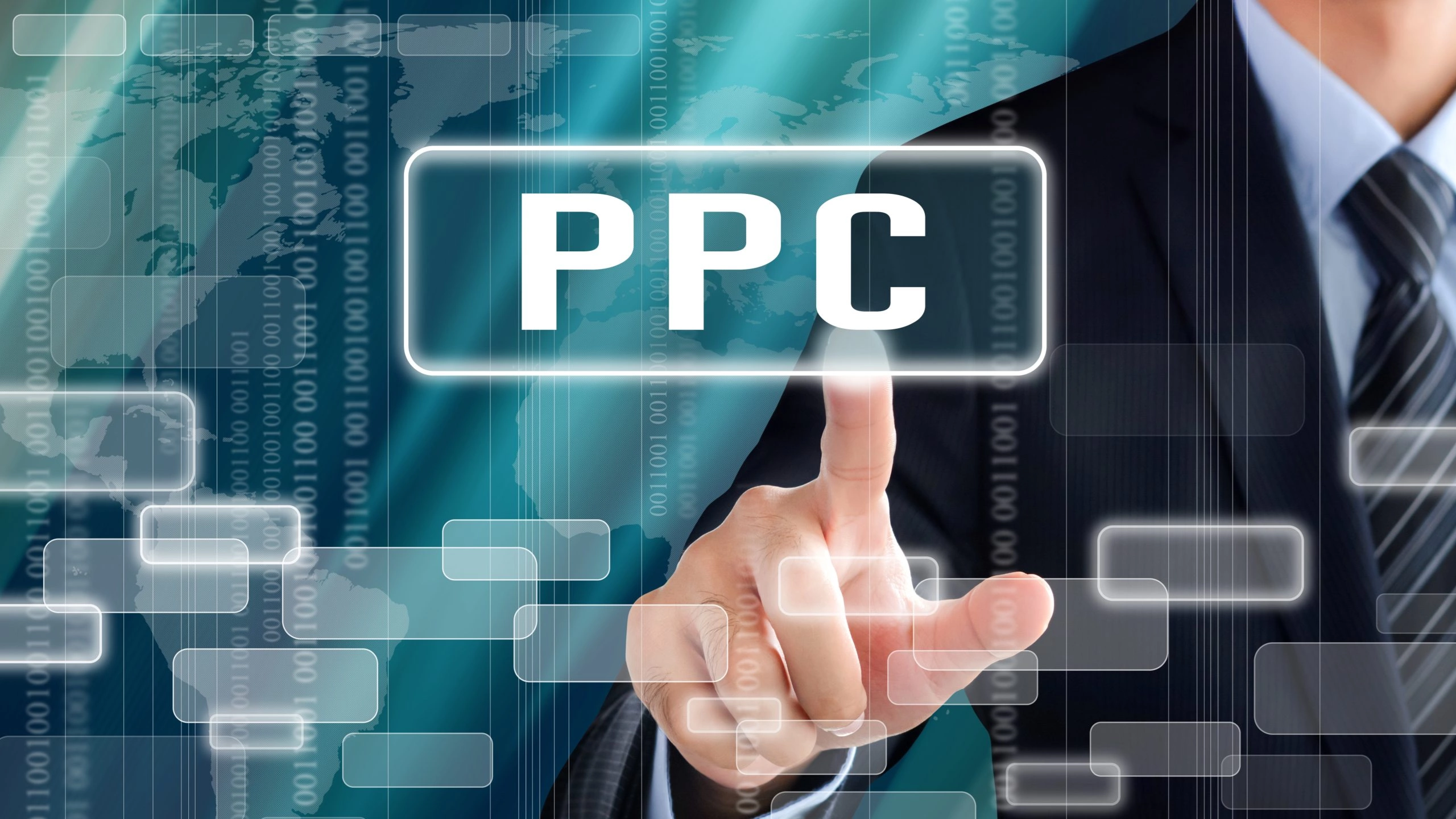
PPC works on a keyword auction system. When users search for relevant keywords, your ad will appear if you have bid higher or have a better quality score than your competitors. Each time a user clicks on your ad, you will be charged a certain fee.
The keyword bidding system is an important part of PPC. When you create a PPC campaign, you choose the keywords that you want your ad to appear for when people search. You then set a bid for each keyword, which is the amount you are willing to pay for each click.
In addition, other factors such as quality score and ad and landing page content are also an important part of PPC. A high quality score can help you reduce your cost per click and improve your ad position. Attractive ad and landing page content that is relevant to the keywords you are targeting will also help increase the effectiveness of your campaign, thereby increasing the conversion rate.
Cost of PPC Advertising
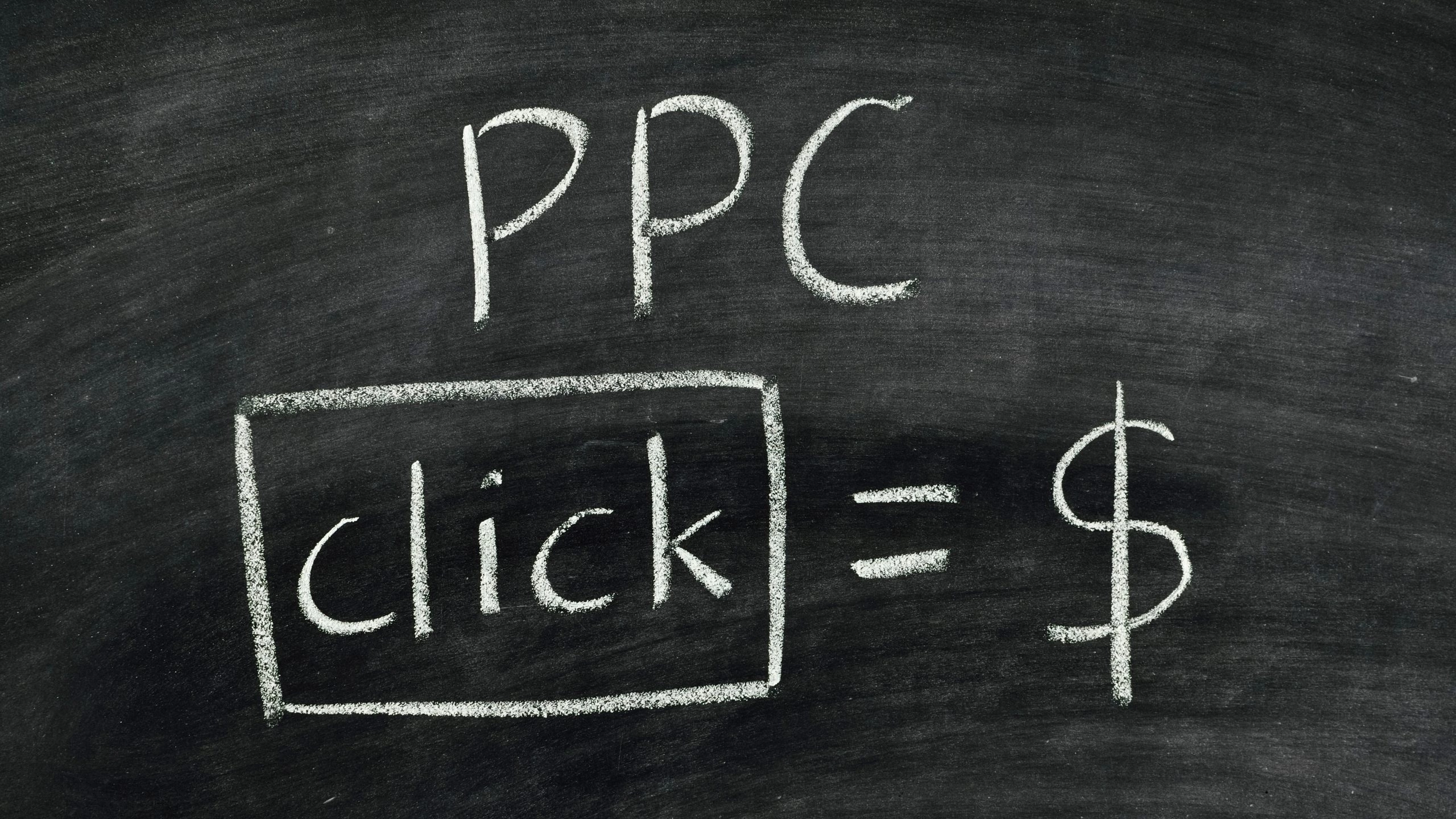
PPC advertising costs depend on various factors such as keywords, industry, and competition. You can set a daily or monthly budget to easily control PPC costs. Here are some factors that affect PPC costs:
- Keywords: Bid prices for each keyword can vary greatly, depending on the level of competition. Keywords that are popular and have a lot of competition usually have higher bids.
- Industry: Your industry also affects PPC costs. Industries with a lot of competition and high conversion values will usually have higher PPC costs.
- Quality Score: Quality Score is determined based on many factors, including keyword relevance, landing page quality, and click-through rate (CTR). A High-Quality Score can help you lower your cost per click and improve your ad position.
- Ad copy: Compelling and relevant ad copy to the keywords you are targeting will also help boost your campaign performance, thereby increasing conversion rates.
The Most Popular Types of PPC Advertising Today
Paid Search
Paid search advertising is one of the most popular forms of PPC advertising. It appears on search engines like Google when people search for relevant keywords. Paid search advertising helps you reach your target customers right when they are searching for the products or services you offer.
Display Advertising

Display ads appear on partner websites as banners, images, or videos. Display ads help you reach your target customers while they’re browsing the web, reading news, or watching videos. Display ads can help increase brand awareness and drive traffic to your website.
Social Media Marketing
Advertising on social media platforms like Facebook, Instagram, and LinkedIn is another popular form of PPC advertising. Social media advertising helps you reach your target customers based on their interests, behaviors, and personal information. Social media advertising can help increase brand awareness, drive traffic, and increase conversion rates.
Behavioral Retargeting
Behavioral targeting ads are based on user behavior and interests, increasing the likelihood of conversions. Behavioral targeting ads help you reach your target customers based on their browsing behavior, search history, and other factors. This helps you create personalized ads and increase conversion rates.
To put it simply, if a customer has clicked on your website, viewed the products and added them to their cart, but then exited and did not continue shopping, you can remarket by sending emails, messages to customers about those items, or upcoming promotions to encourage them to make a purchase.
The Most Popular PPC Advertising Platform Today
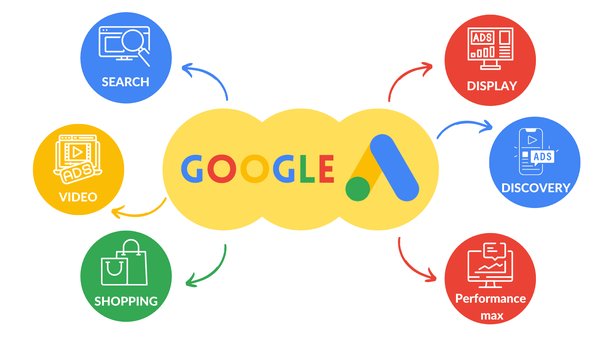
Google Ads is the largest PPC advertising platform with 89.3 billion visits (2022), allowing you to reach millions of users worldwide. Google Ads offers a variety of different types of ads, including paid search ads, display ads, video ads, app ads, etc. In addition, Google Ads also provides detailed analytics tools, helping you track and evaluate campaign effectiveness easily.
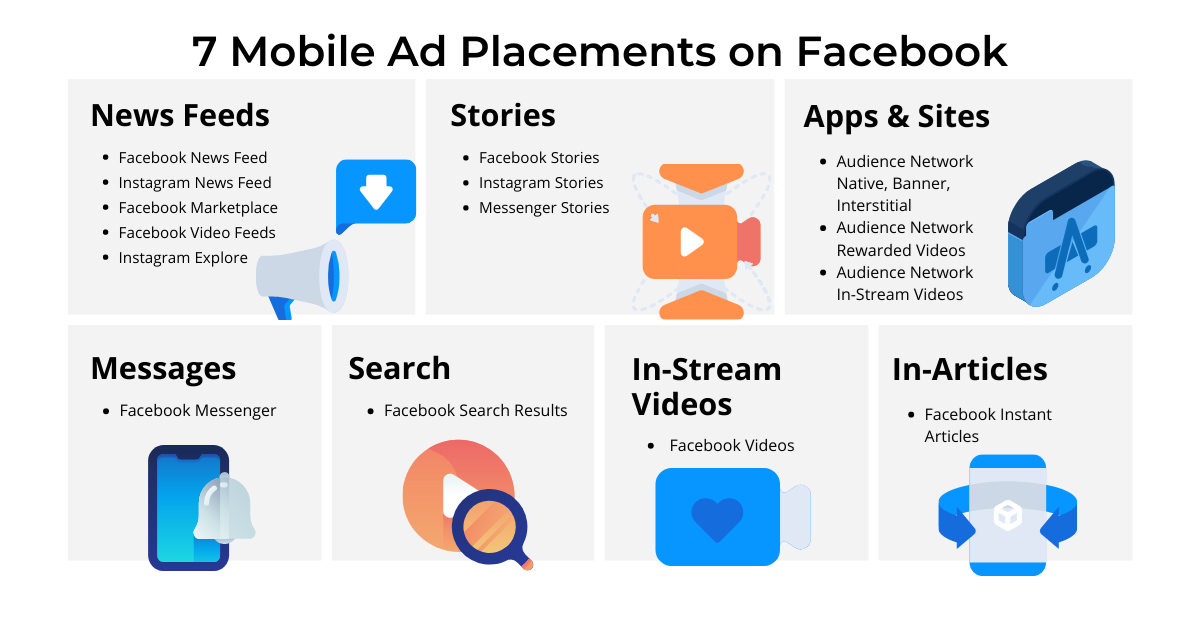
Facebook Ads helps you reach users based on interests, behaviors, and personal information. Facebook Ads offers many different types of ads, including image ads, video ads, carousel ads, etc. Facebook Ads provides detailed analytics tools, helping you track and evaluate campaign effectiveness easily.
Notes when Researching PPC Keywords
Select Relevant Keywords
Keywords must be relevant to your product or service. This helps ensure that your ad appears when users search for related keywords and increases the likelihood of conversion. At the same time, you need to consider factors such as customer search intent, search volume, keyword competition, etc. to come up with keywords that are suitable for your business.
Competitor Analysis
Track and analyze the keywords your competitors are using. This will give you a better overview of your market and customers. Not only that, understanding your competitors’ keyword strategies will also help you find opportunities and improve your campaign better.
Using Keyword Tools

Nowadays, you can find many tools to help you find keywords that are suitable for your business. Some of the tools include Google Keyword Planner, KeywordTool.io, Google Search Console…
These tools will provide information about search volume, competition level, and bid price for each keyword, helping you choose the right keywords for your campaign.
Other Types of Keywords
In addition to your main keywords, you can use additional keywords such as long-tail keywords and negative keywords to help optimize your campaign. Long-tail keywords often have lower competition and lower bids than short-tail keywords. Long-tail keywords also help you reach more specific target customers and increase conversion rates. As for negative keywords, they will help you eliminate irrelevant keywords and reduce advertising costs. This helps you optimize your PPC campaign and ensure that you only pay for real clicks.
How to manage PPC Campaigns Effectively
Data Monitoring and Analysis
Use analytics tools to track campaign performance. You can view clicks, conversion rates, cost per click (CPC), and more to evaluate campaign performance and adjust your strategy as needed.
Keyword Optimization
Adjust keywords based on performance. You can expand your campaign by adding new keywords or add keywords that don’t convert well as negative keywords to improve campaign performance and reduce costs.
At the same time, you should constantly monitor to identify keywords that are not performing well and turn them off when necessary.
Splitting Ad Groups
You can improve your click-through rate and quality score by splitting your ad groups. This will help you create more landing pages and ads that are more relevant to your audience.
Inspection and Testing
Another tip to help you increase the effectiveness of your PPC advertising campaign is to regularly test and test multiple ads to find out which one is the most effective. Elements you can consider changing include headlines, descriptions, images, different landing pages, etc.
Landing Page Optimization
Not only the content of the ads, the landing page is also a factor you need to consider adjusting and optimizing. To increase campaign effectiveness and conversion rate, your landing page needs to provide customers with useful, easy-to-understand, and focused information. Not only that, the design for readability, ease of viewing, page loading speed, etc. will also affect the user experience.
Training and Knowledge Update
PPC is a constantly changing field, so you need to constantly update your knowledge and skills. Not only that, different platforms will have different algorithms, regulations, and ways of working. Check out courses, follow blogs, and groups on these topics to stay up to date with the latest PPC trends.
Conclusion
PPC is an essential part of your SEO strategy evaluation. By applying smart and creative strategies, businesses can not only optimize SEO but also build engagement with target customers. EQVN hopes that through the article What is PPC, you have gained new knowledge about AB Testing as well as new experiences for overall SEO development in general and Digital Marketing in particular.
Comment Policy: We truly value your comments and appreciate the time you take to share your thoughts and feedback with us.
Note: Comments that are identified as spam or purely promotional will be removed.
To enhance your commenting experience, consider creating a Gravatar account. By adding an avatar and using the same e-mail here, your comments will feature a unique and recognizable avatar, making it easier for other members to identify you.
Please use a valid e-mail address so you can receive notifications when your comments receive replies.
